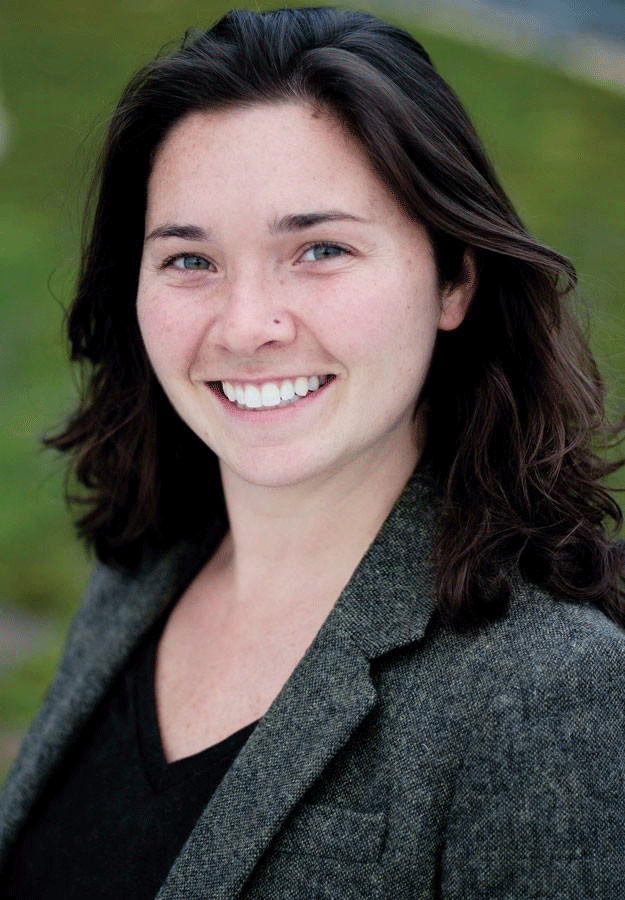Crunching retention data
Elaine Harvey
With NVU-Johnson’s Office of First-Year Experience no more and the future of the VSCS in the hands of the Vermont Legislature, efforts to retain students are more than ever essential for healthy enrollment. Determining how best to keep students enrolled is a large part of Director of Student Engagement and Persistence Elaine Harvey’s job.
“What my whole job relates to is gathering large data sets to determine the… efficacy of programming, as well as looking for longitudinal trends in our student persistence,” Harvey said. She works under a Title III grant, which historically helped form the Office of First-Year Experience at NVU-J.
“It’s a federal grant that allocates dollars to help with small colleges and their retention efforts,” Harvey said. NVU has received another Title III grant more recently that is aimed specifically at retaining students going from their sophomore to junior year.
Some of the current programs that Harvey mentioned for sophomore to junior retention are study abroad, study away and national student exchange programs. She said that Brady Rainville works closely with these programs as the member of advising who focuses most on sophomores.
Harvey said that one of the goals of her job is to answer questions like “why do students succeed, what are some of those factors and what are some of the factors…in why some of our students leave?”
Harvey said that she would be interested in data on engagement that is separate from programming altogether. Harvey hopes for a brief survey that could be sent to students’ phones or emails, with questions centered towards their sense of community within NVU.
This survey would focus on a new approach to monitoring student engagement, which is being called “student belonging index” by some institutions.
“What we’re finding, what research says nationally, is that more often than not, what is more important is whether a student feels that they belong in the campus context,” Harvey said. “You could easily imagine a scenario where a student may be super involved but doesn’t feel like they belong.”
“You could have a student with a 4.0, doing really well in school, and by all other metrics, the university would not reach out to that student, and they leave because, sure they were doing well in classes, but they didn’t find any friends, or they didn’t find any activities that felt really meaningful to them.
“On the flip side, you could have a student with a GPA of a 2.5 or a 2.3 who could use a little bit of help in classes… but has made unbelievable connections within their major, is part of the hammock club, or able to find meaningful internship opportunities, and connect that back to their classroom experience, and that student, because of their sense of belonging, is just so much happier and willing to persist, and able to persist.”
Harvey said examples like these point to why she wants her office to branch out and find new ways to collect meaningful data. She stressed that the amount of data being collected is largely irrelevant if you aren’t looking in the right areas.
“The national literature will tell you that student retention is definitely related to and connected to engagement, connection, the mindset that a student develops in that first year,” Provost Nolan Atkins said. With current events like COVID-19 and the VSCS awaiting bridge funding, he said that retention was a high priority for NVU.
According to Harvey, traditional retention outreach is often based only on GPA. “Just because a student has a low or a high GPA may not be the only reason that they stay or they leave,” she said. “We have to add something else to the picture to fully contextualize that data.”
For Atkins, effective resource management is one of his biggest concerns. “We’re trying to look at a lot of data, to really understand what are the critical factors that lead to student success at NVU,” he said. He added that much of the work Harvey is doing is centered around finding where those resources could be best applied.
“One of the big areas that I am most interested in getting a handle on… is data standardization,” Harvey said. She explained that often the data collected by individual programs are not always applicable to the work she does with the Title III grant.
She said that the issue has come up in the past as well – specifically with Creative Audience. She worked with the Office of First-Year Experience to establish data collection, but after it dissolved this past year, she wasn’t left with much. She said that the data are “usable for the program itself… but really not so much in the larger retention context that I look at.”
Harvey said that moving forward, one of the most important questions to continue asking regarding student retention is, “How are we ensuring that the students are getting opportunities to feel like they belong with the larger community?”

Senior, Creative Writing
From Fletcher, VT
Spring 2020-Present
"Call me mommy and I'll bring you blankets and hold you while you cry."



